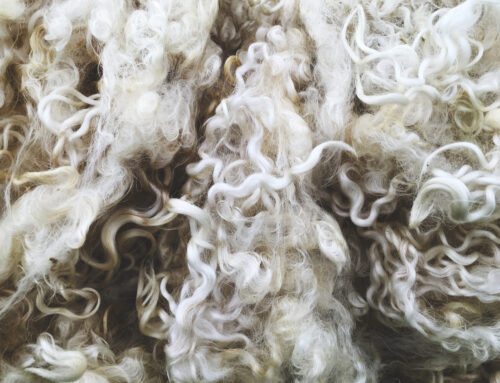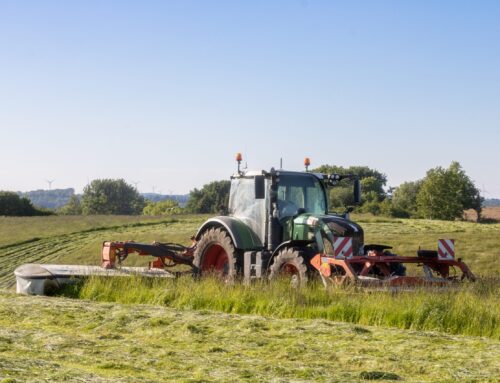In the past two weeks, there has been a lot of noise on social media, spilling into mainstream media discussion about misleading advertising that collates with ‘veganuary’ using questionable science and health claims. This is highly aggravating to the Irish agricultural industry but the discussion needs balance from all sides, nutrition being a good place to start.
In the last few years there has been increasing media and public interest in how red meat and dairy products should be consumed as part of a balanced diet, often conflicting sources of information being cited. Agri Insider spoke with Professor Alice Stanton, of the Royal College of Surgeons in Ireland & Director Human Health, Devenish Nutrition about the latest misleading data from the controversial Global Burden of Disease study (2019) and also with Louise Reynolds, Dietitian with the Irish Nutrition & Dietetic Institute as she gives us her insights on what a balanced diet should include.
Background
To give the study some context, according to the 2017 GBD report, 25,000 global human deaths had been attributed to the consumption of red meat. For the 2019 report the comparable figure rose to 896,000. Deaths attributed to red meat consumption increased almost 36-fold in GBD in the 2019 analysis. The assumption that red meat was linked to serious health risks are seriously over-estimated according to Professor Stanton.
Furthermore, the GBD study of 2017 has been referenced by organisations such as the Food and Agriculture Organisation of the United Nations, World Health Organisation and even our own European Commission to boot, influencing global health policies with unreliable data. Professor Stanton said: “The global burden of disease collaborators led by Professor Christopher Murray have agreed that in actual fact the evidence that consumption of red meat in moderation causes any problem at all is very weak, if there at all.
“Previously, they had said eating red meat from the first mouthful was causing deaths from heart attacks, strokes and cancers. They have now agreed that the evidence is not there for that relationship.” However, this admission, while welcome, still falls short as GBD collaborators have not corrected the original 2019 analysis report according to Professor Stanton.
Current Position
A key question for consumers and the industry, has the publication of the 2019 report had an impact on the public perception of meat and dairy? Professor Stanton said: “The Global Burden of Disease 2019 report, published in the Lancet has been cited by more than 2,000 scientific journals….there have been headlines in such newspapers such as the Sunday Times so yes I do think it is influential on the public perception of red meat.”
In an Irish context, red meat and dairy products still play a central role and are recommended in Irish guidelines as part of a nutritious diet. Two servings of the food pyramid including meat, poultry, fish, eggs, beans and nuts are recommended by the national framework ‘Healthy Ireland’, while the same initiative recommends three servings a day of milk, yoghurt and cheese. Crucially, the initiative implements evidence-based policies to improve the health and well-being of the nation.
Yet, conflicting nutritional information is still influencing experts and consumers according to Professor Stanton. She said: “I think there is some misinformation in the public domain and I think it is influencing both health professionals and the general public. I’ve had a number of health professionals who have said to me ‘We all know red meat is bad for you and so is dairy’. My response has been ‘Well that’s very surprising because that’s not the evidence I’ve seen in medical literature.’ It is having an impact and could well have an impact on policy makers who are not necessarily scientists or physicians….”
Irish health guidelines have not been influenced by the assumptions behind GBD 2019. Healthy Ireland and Safefood advocate red meat and dairy products in moderation as part of a healthy diet. International organisations such as the Academy of Nutrition Sciences & World Cancer Research Fund are also unperturbed by the 2019 findings. They do not recommend complete avoidance of meat, as presented by Professor Stanton at the most recent Positive Farmers Conference in Cork.
Dairy and meat alternatives
It was at this conference where Professor Stanton argued that dairy is a prime food source for people all over the world, but here in Ireland plant based dairy alternatives continue to leave an impression with consumers. The ‘Plant-based dairy alternatives: Products Available in Supermarkets on the Island of Ireland, and Consumer Behaviours and Perceptions’ report published in October 2022, states that there are 201 plant-based dairy alternatives available in supermarkets on the island of Ireland as of 2021.
Findings from the consumer survey reveal that the main reason for choosing plant-based alternatives to dairy is “healthier/better for me” at 20 per cent, followed by “a change/variety” (18 per cent), “I like the flavour/taste” (15 per cent), “dairy intolerance/unable to have dairy (myself/family member)” 14 per cent and “health reasons (myself/family member)” 14 per cent. One third of adults on the island of Ireland report that they consume plant-based dairy alternatives, with 10 per cent stating they always consume plant-based dairy alternatives.
The research shows that these products vary in nutritional content and it is advised to check the labels and look for dairy alternatives containing sources of protein that are unsweetened and fortified with calcium. Louise Reynolds is a registered dietitian and communications manager with the Irish Nutrition & Dietetic Institute. She is well placed to compare conventional dairy and dairy alternative products.
She said: “From a nutritional point of view, I’ve looked at them closely…while sometimes they (plant-based alternatives) can be used as a replacement for cow’s milk, they are not nutritionally equivalent. Therefore, the dairy alternatives, they need to be fortified to try to match the profile of cow’s milk.
“There are so many available now, that’s a positive thing regardless of what their reason is. However, from a nutritional point of view they’re not all created equally. You do need to have a look at every one you’re choosing and get familiar with reading labels, particularly if you’re giving them to children…the more restrictive your diet becomes and the more animal products you’re cutting out, then you just need to be a bit little more careful to make sure you’re hitting all of the targets.”
Advice
“So the first thing I would say with the alternative beverages would be the protein content. If you’re having a glass of cow’s milk, whether skimmed or low fat even, there’s about 8g of protein in that. The only one of the alternatives that is comparable is soya milk with 7g. I don’t think people know that, you need to get that protein elsewhere.
“The second thing is calcium and the reason that cow’s milk is on its own shelf on the food pyramid with cheese and yoghurt is because they are the best source of calcium on the diet. We can’t make our own calcium so we have to ingest it or drink it everyday. The calcium in dairy foods is very easily absorbed in the body. If you’re going for an alternative, make sure that it is fortified with calcium.”
Louise also suggested calcium in alternative products can sediment to the bottom, so it is important to shake beverages before drinking them. Another issue is that iodine outside of dairy and seafood products is hard to acquire so it is important to know if these foods are cut out of a diet. Asked about red meat, Louise recommended that portion size, low in fat and good quality red meat is important for protein and iron requirements. She said: “A small amount less often is absolutely fine.”
More people are trying dairy and meat alternatives as consumer behaviours evolve and there are many legitimate reasons to do so, but it is important to recognise that current research and current guidelines still advocate that Irish dairy and beef consumption can help maintain a healthy, balanced diet.





